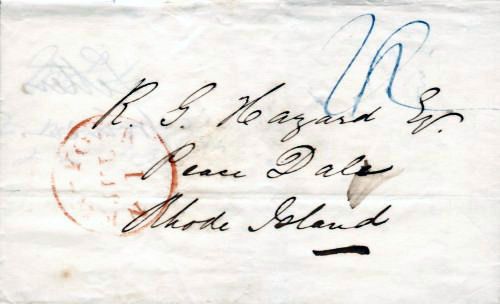![]()
Postal History Introduction
Stampless
Covers
1846
to 1900 Issues
1901-1950
Issues
1951-2003
Issues
Cancels
&
Miscellaneous
Postal
Stationery
Post
Cards
Air
Mail
First
Day &
Event Covers
Parcel Post/Special Delivery
Registered & Official Mail
Commercial & Advertising
Revenue & Postage Due
Wildlife & Game Issues
Complete List of RI Issues
|
The Hazard Family
Letters 1832-1950 |
||
|
||
|
1840 New York CDS with 183/4 Cent Rate Marking |
||
|
![]()
RI Historical
Society
The Post Offices
Home Page
RI Tercentenary Issue History
RI Philatelic Society
Recently Added Pages
Philatelic Primer
Rhode Island Around the World
Rhode Island
Town Postmarks
Other Websites of Interest
Hazard Family Letters I
Hazard Family Letters II
Hazard Family Letters III
Hazard Family History
